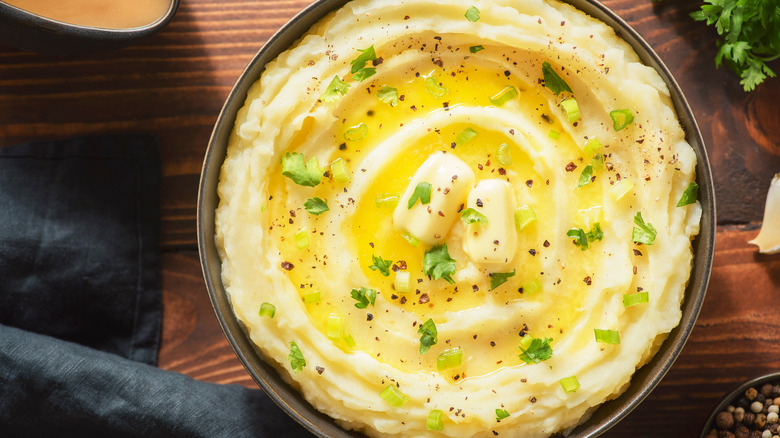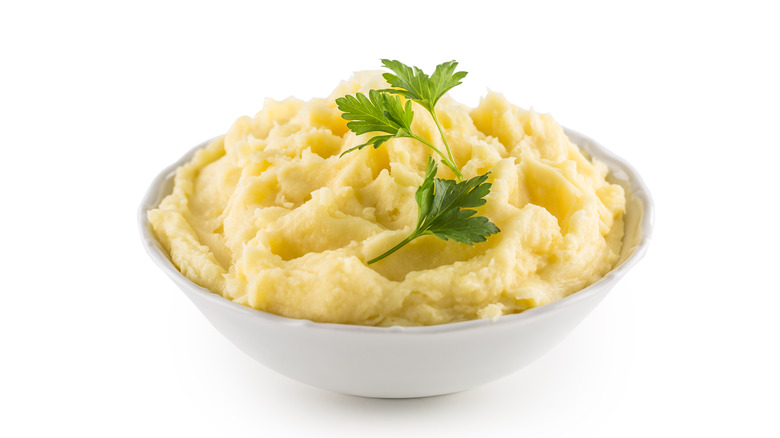The Seasoning Mistake You're Making With Mashed Potatoes
Mashed potatoes offer something vastly different to everyone. For some, they are the epitome of comfort, a bowl of warmth and restoration, a simple-to-eat food that acts as both panacea and sustenance. For others, mashed potatoes are merely a cog in the wheel of holiday meals. Then, there are those who find mashed potatoes lack the textural appeal to make them truly interesting or desirable at all. Mashed potatoes are one of the most common and iconic sides. In fact, have you checked the name of the very site you are currently reading?
Of course, as with most prepared meals, there are a few tips and tricks you should always try to follow when making mashed potatoes at home.
Butter, milk or cream, and the optional cheese inclusion seem to be at the center of most mashed potato discourse, for good reason. But there is one element missing from that discussion, which is perhaps what really separates the wheat from the chaff when we're talking about the best mashed potatoes.
The secret is: salt!
As chef Anne Burrell once noted on her show "The Secrets of a Restaurant Chef," the boiling water in which potatoes are cooked before being mashed should be incredibly well seasoned — "like the ocean," as one of her catchphrases goes. This is the first means of enriching the potato itself, so careful attention should be paid to ensure it's flavorful prior to ever being mashed.
Potatoes are incredibly dense, and, according to Bon Appétit, it is a long way for salt to reach the deep middle while cooking. For a large batch of mashed potatoes, the outlet recommends adding one cup of kosher salt to the water, ensuring that there's more than enough to get the job done. This helps season the potatoes right out of the gate, meaning less added salt later. If you attempt to add flavor to your mashed potatoes only post-mash, that singular seasoning simply won't be enough, similar to pasta that tastes flat after being cooked in unsalted water.
You can also use various types of potatoes or half root vegetables, add whole garlic cloves, or omit the water altogether and cook in stock or milk if you are looking to deepen the flavor even further. Whether hand-mashing or using a machine, opting for Idaho, Russet, or Yukon gold, or going for an uber-cheesy mash or a vegan one, you absolutely must season your cooking water when making mashed potatoes. Do that, and it will be smooth sailing from there.

